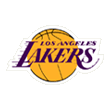New York Knicks superstar Carmelo Anthony has declared his intent to test free agency in 2014, throwing his name into the ring in an interview with the New York Observer. He's never been a free agent before, as he's been extended each time he was approaching the end of his deal. What does this mean? Where could he end up? Here's a handy FAQ to help you navigate "Melodrama 2014."
How is Anthony able to be a free agent? I thought he had another year?
The last year of Anthony's deal has what is known as an early termination option, or ETO, which allows him to tear up the last year of his deal and become a free agent prematurely. Typically, the ETO is not exercised until the last possible moment (June 30) in order for the player to safeguard himself against catastrophic injury, so while Anthony has declared his intent to opt out, he probably hasn't OFFICIALLY done that yet.
How much money can he make?
The maximum starting salary for Anthony's new deal is $22.5 million (105 percent of his 2013-14 salary, $21.4 million). From there, it depends on two things: where he signs and how long he signs for.
If Anthony stays in New York, he can receive 7.5 percent raises on that $22.5 million for up to five years, giving him a total deal of roughly $129 million over five years. If he chooses to leave the Knicks, his raises decrease to 4.5 percent, and he can sign for only four years, giving him a total deal of roughly $96 million over four years.
How much cap space does a team need to sign him outright?
When dealing with a player of Anthony's stature, teams interested in procuring his services have to assume the worst-case scenario: He will give no discounts and seek to sign for the maximum allowable. This means would-be suitors should count on having enough room under the cap to absorb a $22.5 million salary. The 2013-14 salary cap is about $58.7 million (up from $58 million a year ago), so an extremely generous cap projection would be about $62.5 million.
This means a team looking to sign Anthony outright should be in the neighborhood of about $40 million committed next year (you can always find a trade partner to shave off the last couple of million, as Houston did this year prior to signing Dwight Howard).
Which teams are projected to have that much cap space?
Assuming minimal cap machinations (e.g. waiving nonguaranteed deals) and renouncing of all free agents, here are the teams projected to have the lowest payrolls (and thus the most cap space) in 2014 (courtesy of Mark Deeks at shamsports.com).
L.A. Lakers: $12.7 million
Utah: $17.6 million
Philadelphia: $22.0 million
Dallas: $32.2 million
Phoenix: $35.7 million
Charlotte: $41.6 million
Detroit: $42.2 million
Orlando: $45.1 million
Two things to consider: First, several of these teams (Detroit, Phoenix, Utah) have key players who are up for their rookie extensions. Obviously any new deals given would eat away some of that cap room. Second, due to a collective bargaining agreement nuance, expiring Bird right contracts on those rosters carry a cap hold, which acts as a placeholder until the player is either re-signed to a new deal, signs elsewhere or is renounced as a free agent (thus losing the Bird rights). This is probably most important in the Lakers' case, where Kobe Bryant alone carries a $32 million cap hold.
Is a boatload of cap space the only way you can get in on this party?
Not necessarily. Some teams might be one albatross contract trade away from creating the cap space necessary to make their Melo dreams come true. For example, if the New Orleans Pelicans can find a taker for Eric Gordon's contract, which calls for him to make $14.9 million in 2014-15, they could conceivably maneuver into the cap space needed.
Another option would be if the Knicks found a sign-and-trade partner that doesn't have the necessary cap room, but where a deal could be worked out in which the Knicks receive some compensation in exchange for facilitating a trade. For example, if the Warriors are $10 million under the cap next summer, the Knicks conceivably could sign-and-trade Anthony to Golden State for David Lee's $15 million salary. However, any team more than $4 million above the tax line is ineligible to receive a player via sign-and-trade, so that nixes the high-payroll teams from consideration.
The least likeliest of options is, of course, Anthony giving his new team a sizable discount.
Of the teams with plenty of cap space, which are least likely to pursue Anthony?
Orlando, Philadelphia, Phoenix and Utah (or, as I liked to call them, the Four Horsemen of the Tankopalypse) are all smack dab in the middle of full organizational resets, and while they'd all appreciate having a player of Anthony's caliber, the reality is even if he was open to going to a young team starting from scratch, he'd take them to a mediocre level where they aren't bad enough to get choice draft picks and aren't good enough to build toward title contention.
So who are the teams who have the biggest need (and ability) to acquire Anthony?
New York Knicks

Why? Because they can pay him more than anyone else, are in a marquee market and have flexibility moving forward.
Why not (their objections)? Devoting almost 50 percent of your cap space to a player who doesn't make anyone better on either end of the court might not be an experiment they wish to continue.
Why not (his objections)? A threadbare payroll in 2015 means tons of flexibility, but it also means they have to fill in the blanks. It wouldn't be the first time New York had a ton of cap space and struggled to get talent in the door.
Verdict: The safest bet. He's in the media capital of the country and has the type of organizational control that every star covets. Oh, and they can guarantee him $33 million more than anyone else.
Los Angeles Lakers

Why? A clean-slate payroll and an opportunity to replicate a West Coast version of what happened in South Beach in what ESPN's panel of writers, editors and analysts deemed the No. 1 market in the league.
Why not (their objections)? Could an Anthony-Bryant duo coexist? If Bryant isn't part of the equation moving forward, who will be available to complement Anthony? Also, same objection as the Knicks: Is he worth all that obligation?
Why not (his objections)? Playing with an ornery Bryant who clings to the notion that the team revolves around him and everyone else should capitulate to him may not be the most attractive sales pitch.
Verdict: L.A. has never gone long without having star power on the roster. If Anthony leaves New York, Hollywood would be the next logical destination.
Dallas Mavericks

Why? Under Mark Cuban, the Mavs have been one of the most player-friendly organizations that will spare no expense. Also, Dirk Nowitzki is a star who would probably be more willing to taking a secondary role to Anthony.
Why not (their objections)? Dallas has some glaring defensive weaknesses moving forward, particularly on the front line, and spending most of its cap space on another scorer means less money to spend on that need. Also, Monta Ellis and Anthony on the same team would make for some "interesting" lineups.
Why not (his objections)? Nowitzki in his decline might not be enough to entice Anthony into wanting to play in Dallas. Can you really sell him on playing with Ellis and an aging Jose Calderon?
Verdict: The Mavs have struck out on several high-priced free agents the past two summers, so it wouldn't shock me to see them put on the full-court press for Anthony.
Detroit Pistons

Why? Anthony as a shooter would solve a tremendous need for the Pistons, and would allow them to run him and Josh Smith as opposite wings and Andre Drummond at the pivot, which would make for a devastating frontcourt, and would be able to make up for his defensive shortcomings. Also, Joe Dumars would get to redeem the mistake he made 11 years earlier when he selected Darko Milicic with the second overall pick over Anthony.
Why not (their objections)? The only conceivable way to make this happen would be if Greg Monroe did not return.
Why not (his objections)? He'd have to play in Detroit, the third-worst market according to ESPN's panel.
Verdict: On paper, the Pistons have a nucleus that would actually fit pretty well with Anthony's talents, and vice versa. If they were in almost any other city, they'd have a decent shot at luring him away, but I just can't see him playing in a below-the-radar market like Detroit.
Charlotte Bobcats

Why? The Bobcats/soon-to-be Hornets' recent offseason signified the shift in organizational philosophy from "let's be as bad as we can be" to "let's start trying to be a good team again." Adding Al Jefferson was the first step toward respectability; for all his defensive flaws, he is an elite post scorer. Anthony would be an even larger second step. Also, don't discount the Jordan Brand connection.
Why not (their objections)? Signing Anthony would tie up their cap flexibility for years, and probably still wouldn't make them any better than a one-and-done playoff team.
Why not (his objections)? Playing in a smaller market, for a team that's just now trying to climb out of the gutter, might not be his idea of situational upgrade.
Verdict: It'd be interesting to see if Michael Jordan's status as every current player's favorite player of all time actually could be leveraged into signing a marquee free agent. But I don't see Anthony choosing to go to Charlotte at this stage of his career.
